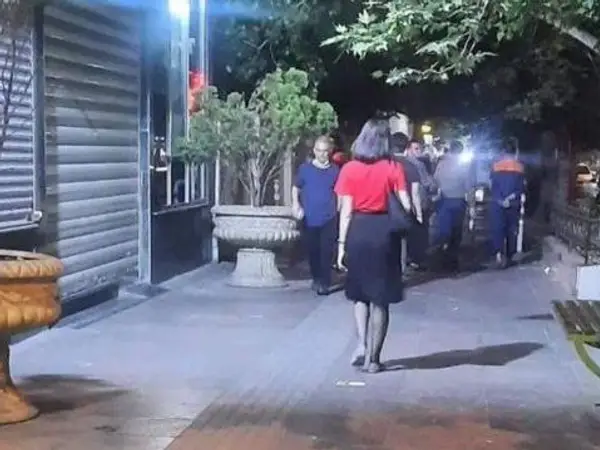The flogging of a young woman, Roya Heshmati, by law enforcement for refusing to wear the compulsory hijab in Iran has sparked outrage among many Iranians.
The sentence was carried out on Wednesday, leading to widespread condemnation, after she posted a touching personal account in a social media post.
“These lashes did not just come down on the body of one woman, they hit all those who dream of a life with normal freedoms alongside each other. Enough is enough. Don't disgust the society any more than this,” prominent political and social commentator Abbas Abdi said in a tweet.
Lashing women for not abiding by the strict hijab rules demanded by religious revolutionaries was very common in 1980s and 90s, but not carried out often in the past two decades.
Many argue that the execution of the lashing sentence violates the law since the recent hijab law passed by the parliament does not include lashing as a punishment.
Persian social media has been flooded this weekend with angry comments since the incident was publicized. People praised Heshmati for her courage to reject the forced hijab, even after her lashing.
In a statement published by its official news website, Mizan, the judiciary claimed on Sunday that Heshmati was sentenced and flogged because she had connections to "an organized group outside Iran" and had received money to defy hijab rules publicly "in a very indecent manner," presumably to encourage others to do the same. The statement added that the sentencing to 74 lashes was confirmed due to the extent of her actions, which were seen as a violation of public chastity and morals.
Some female politicians including prominent female dissident Zahra Rahnavard, who has worn the hijab by choice for decade, and Azar Mansoori who leads the Reformist Front and the People’s Unity Party of Islamic Iran have objected to the lashing of the young woman for hijab.
“You who rule! You whip Roya Heshmati’s body but she, the one with an alert and resilient conscience, laughs bitterly at you. I abhor your manner of governance,” Rahnavard who has been under house arrest since 2011 along with her husband Mir-Hossein Mousavi as leaders of Iran's anti-regime Green Movement said in a message while Mansoori said one could not be a Muslim and stay silent about Heshmati’s flogging for hijab.
The 23-year-old Heshmati, a vocal critic of compulsory hijab, was arrested at her home in April after posting a photo that showed her dressed in a modest red shirt and black skirt from behind while walking in the street without a headcover.
Heshmati who lives in Tehran was held in custody for eleven days on charges of “appearing in public without religiously prescribed hijab”. The charges of “propaganda against the regime”, “violating public decency and order”, “creating indecent social media content and encouragement of people to immorality” were brought against her later.
She was initially sentenced to thirteen years in prison, a cash fine of around $25 and 74 lashes. The appeals court dropped the prison sentence but withheld the lashing order and cash fine.
In a note published on Instagram after being lashed, she vividly described how a man hit her shoulders, back, backside, and legs with a leather whip in a small room, resembling a medieval torture chamber, while she whispered a song named “Rise, for Woman, for Life, for Freedom” under her breath.
She also said court agents kept trying to cover her head because upon entering the courtroom she had refused to wear her headscarf despite threats of harsher flogging and further prosecution.
“[The lashing] was over. We left the room. I didn't let them think I had experienced pain…We went up to the judge in charge of execution of the sentence. The female agent walked behind me and was careful not to let my headscarf drop from my head. I threw off my scarf at the courtroom entrance. The woman asked me to wear the headscarf. I didn't stop and she pulled it over my head again," she wrote.
